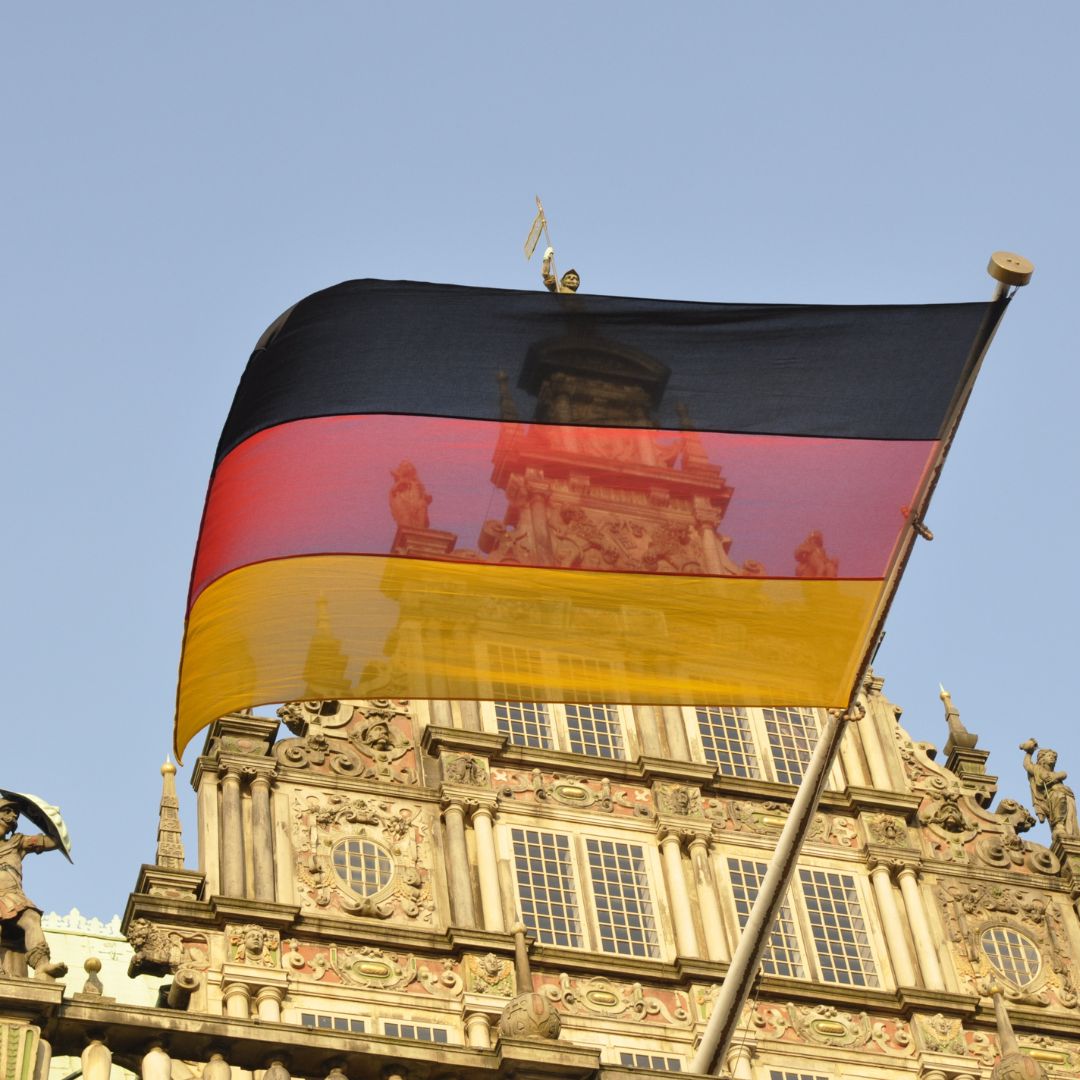Germany is a leading destination for skilled professionals looking to work in Europe. Known for its strong economy, high standard of living, and demand for international talent, the country offers numerous opportunities for job seekers across industries. One of the most accessible pathways for foreign nationals aiming to work in Germany is the Germany Job Seeker Visa. This visa allows qualified individuals to enter the country and look for employment over an extended period.
In this detailed blog post, we explore everything you need to know about the Germany Job Seeker Visa for 2025, including the application process, types of jobs available, sponsorship options, and practical tips for success.
1. What is the Germany Job Seeker Visa?
The Germany Job Seeker Visa is a long-term residence permit specifically designed for skilled professionals from non-EU countries. It offers the opportunity to enter Germany for up to six months solely for the purpose of job hunting. Unlike other work visas, it does not require you to have a job offer before arriving, giving you the flexibility to explore the job market in person, attend interviews, and network with employers directly.
This visa is a part of Germany’s strategic initiative to combat skill shortages in critical sectors such as IT, healthcare, engineering, and skilled trades. The German government acknowledges the value that skilled migrants bring to its labor force and has streamlined the process to attract international talent.
During the six-month stay, individuals must actively seek employment that matches their qualifications. Once a job is secured, the applicant can transition to a work visa or EU Blue Card, allowing them to stay and work in Germany legally. If a job is not found within the period, the visa holder must return to their home country but can reapply later with an updated plan.
2. Eligibility Criteria for 2025
To qualify for the Germany Job Seeker Visa in 2025, applicants must meet specific eligibility criteria that ensure they are capable of sustaining themselves financially and are equipped to contribute meaningfully to the workforce.
Educational Requirements:
Applicants must hold a Bachelor’s or Master’s degree from a recognized university. Ideally, the degree should be in a field where Germany is currently facing labor shortages, such as STEM (science, technology, engineering, and mathematics), healthcare, or skilled trades.
Work Experience:
At least five years of relevant professional experience in your field of study is typically required. This demonstrates that you have the practical knowledge and expertise to be competitive in the German job market.
Proof of Financial Stability:
You must show that you have sufficient financial resources to support yourself during your stay in Germany. Typically, this means demonstrating access to €5,000 to €6,000 through a blocked account (Sperrkonto) in a German bank. This ensures you can cover accommodation, food, insurance, and transportation costs.
Health Insurance:
Applicants must purchase valid health insurance coverage that is recognized in Germany. This could be travel health insurance or a German-based policy, depending on the length and type of stay.
Language Proficiency:
Although not mandatory, proficiency in German (B1 or higher) or English can significantly boost your job prospects and improve your visa application. Certain industries may require fluency in German.
Motivation Letter:
A well-written motivation letter outlining your career goals, reasons for choosing Germany, and a plan for job searching is a crucial part of the application. This letter should convey your commitment and preparedness.
How to Apply for the Germany Job Seeker Visa
Step 1: Document Preparation
The first and arguably most critical part of the Germany Job Seeker Visa process is preparing your documentation. Your application’s success hinges on presenting a complete, well-organized, and convincing set of materials that show you’re qualified, financially stable, and serious about working in Germany.
Here’s what each document should include and how to handle it:
Valid Passport
Your passport must be valid for at least 12 months beyond your planned entry date into Germany. It should also have at least two blank pages for visa stamps. If your passport is near expiration or damaged, renew it before applying. Submit both the original and a photocopy of the ID page.
Degree Certificates and Academic Transcripts
Provide official degree certificates (Bachelor’s or higher) and transcripts from a recognized institution. The degree should ideally relate to fields in demand in Germany (engineering, IT, healthcare, etc.).
Make sure your qualification is recognized in Germany by checking its status on the Anabin database (anabin.kmk.org). If not listed, you may need an equivalency statement from ZAB (Central Office for Foreign Education).
Curriculum Vitae (CV)
Prepare a professional CV following German formatting standards. Use a clean, chronological format listing your education, work experience, technical skills, certifications, and languages.
Include the Europass format or a clear German-style layout. Avoid overly casual or creative CVs. Include references where possible.
Proof of Work Experience
Attach employment reference letters or experience certificates from previous employers. These should clearly state your job title, duties, duration of employment, and contact details. The stronger your professional background, the better your chances of convincing the embassy that you can find a job within six months.
Proof of Funds (Blocked Account)
To prove financial stability, you’ll need a blocked account (Sperrkonto) in a German bank showing access to around €5,000–€6,000. This money will be frozen and released monthly once you arrive in Germany, showing you can support yourself without public assistance.
Open the account with banks like Fintiba, Expatrio, or Deutsche Bank, depending on your country of residence. Include the account confirmation letter with your application.
Valid Health Insurance
Health coverage is mandatory. Provide a certificate showing you have travel or expatriate health insurance valid in Germany for the duration of your visa (six months). The coverage should meet Schengen visa requirements. If you’re converting to a work permit later, switch to a German public or private insurer.
Motivation Letter
Your motivation letter should outline:
- Why you want to work in Germany
- Your professional background and goals
- Your understanding of the German job market
- How you plan to search for jobs
- What you’ll do if you don’t find employment
Make it clear, concise, and personalized. Avoid generic statements. This letter is your opportunity to make your case beyond the paperwork.
Visa Application Form and Photos
Fill out the official National Visa (D-Visa) application form. This can typically be downloaded from the embassy website. Include two biometric passport photos that meet Germany’s size and background requirements. Many applicants are rejected simply because their photos don’t comply, so check specifications carefully.
Document Translation and Certification
All documents not originally in German (or in some cases, English) must be:
- Translated into German by a sworn translator
- Certified by a notary or relevant authority
Inaccurate or uncertified translations can delay or invalidate your application.
Step 2: Embassy Appointment
Once your documents are in order, the next crucial step is to book an appointment at the German Embassy or Consulate in your country of residence. Each embassy has its own scheduling system—some use online portals, while others require appointments via email or telephone. It’s important to check the official website of your local German mission for exact instructions and timelines.
Because of increasing interest in the Job Seeker Visa, appointment slots may be limited and booked out months in advance. Be proactive and monitor the appointment calendar frequently. Some embassies open new slots at midnight local time, so setting a reminder or alarm could give you an advantage.
In addition to scheduling the appointment, review the embassy’s specific checklist. Requirements may vary slightly by country, particularly around document translations, legalization, and payment methods. Arriving at your appointment with the exact paperwork requested significantly improves your chances of approval.
Also, ensure your passport is valid for at least 12 months beyond your intended arrival date in Germany, as this is a basic prerequisite. A clear understanding of the process and embassy-specific expectations will prevent delays or rejections.
Step 3: Application Submission and Interview
On the day of your appointment, arrive early and dress professionally—your visa interview is your chance to demonstrate seriousness, preparation, and intent. Bring all required documents neatly organized, ideally in a folder labeled with sections (passport, education, CV, financial proof, insurance, etc.).
During the interview, the visa officer may ask detailed questions about:
- Your academic and professional background
- Your career goals and job search strategy in Germany
- Your motivation for choosing Germany over other countries
- What you plan to do if you don’t find a job within the six-month period
Be confident and transparent. The officer is assessing not just your eligibility but also your intentions and preparedness. Emphasize your qualifications, skills in high-demand sectors, and your financial readiness to support yourself without working during the job search.
Having printed proof of job market research—such as listings from portals like Make it in Germany or StepStone—can strengthen your case by showing you’ve already identified potential roles and employers.
Step 4: Pay the Visa Fee
After submitting your documents and completing the interview, you’ll be required to pay a non-refundable visa processing fee, which is typically €75. This amount can vary slightly based on exchange rates or embassy-specific policies.
Be sure to check acceptable payment methods in advance, as some embassies accept only cash in local currency, while others might permit credit/debit cards or bank drafts. Arriving with the wrong form of payment can lead to delays or even require rescheduling the appointment.
If you’re applying with family members, each person will need to pay a separate visa fee. While the Job Seeker Visa is primarily for individual applicants, spouses and children may be eligible for other visa categories if you later convert your visa into a work permit or Blue Card.
Remember to keep the official receipt, as it may be needed later for verification or as proof of application during follow-up inquiries.
Step 5: Wait for Processing
Once your application has been submitted and your visa fee paid, the processing time generally ranges from 4 to 6 weeks, but it can extend to 8 weeks or more during peak seasons. Some embassies provide online tracking systems, while others offer status updates only via email or upon request.
During this time, refrain from making non-refundable travel plans or resigning from your job until you receive an official visa approval. Immigration officers will assess your case by cross-checking documents, verifying your qualifications, and ensuring your application meets national labor and immigration policies.
If additional documents are needed, you’ll typically be contacted via phone or email. Respond promptly to any requests from the embassy to avoid further delays.
Once your visa is approved, you’ll be notified to collect your passport. The visa will typically be a D-type national visa, valid for six months, and will include your entry dates and any conditions attached.
4. Job Opportunities Available in Germany
Germany’s job market is one of the strongest in Europe, with steady growth and a low unemployment rate. The country actively seeks skilled professionals to fill gaps in its labor market.
Sectors in High Demand:
- Information Technology (IT): Developers, cybersecurity experts, data analysts, software engineers
- Engineering: Mechanical, electrical, civil, and automotive engineering roles
- Healthcare: Nurses, physiotherapists, medical technologists, and doctors
- Skilled Trades: Electricians, plumbers, welders, carpenters
- Finance and Accounting: Financial analysts, auditors, tax advisors
- Logistics and Supply Chain: Operations managers, supply chain coordinators
Top Cities for Jobs:
- Berlin: Tech and startups
- Munich: Automotive and finance
- Frankfurt: Banking and international business
- Hamburg: Logistics and maritime
- Stuttgart: Engineering and manufacturing
Where to Search for Jobs:
- Make It In Germany (official portal for international professionals)
- Jobbörse (Federal Employment Agency job portal)
- LinkedIn, Xing, StepStone, Indeed.de
- Local career fairs and job expos, often hosted in larger cities
5. Work Permit and Sponsorship After Finding a Job
Once you have secured employment, you need to apply for a work permit or EU Blue Card to continue working legally in Germany.
Transitioning from Job Seeker Visa:
As soon as you receive a job offer, apply to change your visa status at the local immigration office (Ausländerbehörde). You will need:
- Employment contract
- Proof of accommodation
- Updated health insurance
- Employer’s declaration (for Blue Card applicants)
Types of Permits:
- General Employment Permit: For standard positions that meet minimum salary thresholds
- EU Blue Card: Designed for high-skilled roles with competitive salaries. In 2025, the threshold is €58,400/year, with a reduced threshold for shortage occupations
Employer Support:
Many employers provide support for:
- Work permit applications
- Visa-related legal advice
- Relocation assistance (moving, accommodation, cultural orientation)
- Language training
Highlighting your readiness to transition from a Job Seeker Visa to a work permit makes you more attractive to potential employers.
6. Tips for Success on the Job Seeker Visa
Making the most of your six months in Germany is essential. Here are some key strategies:
Language Skills:
Invest in improving your German language skills. Even if the job requires English, basic German helps in daily life and increases employment opportunities.
Resume and Cover Letter:
Customize your CV and cover letter to German standards. Use professional templates and emphasize relevant skills, experience, and certifications.
Networking:
- Join professional LinkedIn and Xing groups
- Attend career fairs and meetups
- Engage with local expat communities and business chambers
Budget Wisely:
Plan your expenses in advance. Consider shared housing, budget groceries, and public transportation to stretch your funds over six months.
Wrap
Job hunting can be challenging. Keep a schedule, apply consistently, follow up, and refine your approach based on feedback.
or a tech role in Berlin or a healthcare position in Hamburg, Germany welcomes skilled workers ready to contribute to its economy. Stay informed, stay focused, and let your skills pave the way to success in Germany.




